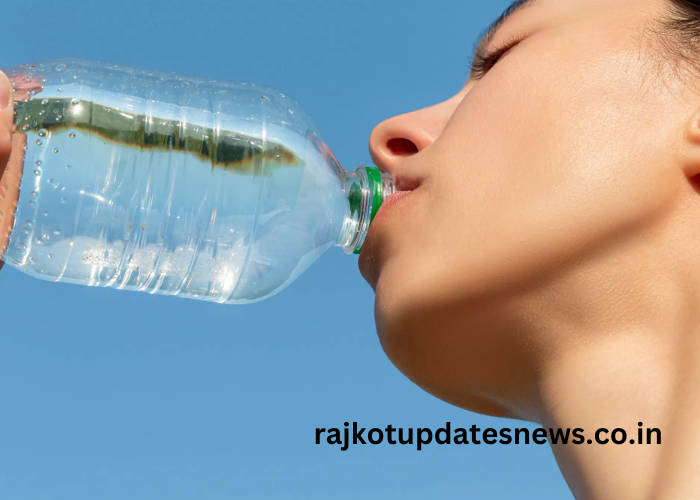
The convenience of plastic water bottles has made them a staple in our daily lives. However, many people overlook the potential dangers associated with their reuse. Understanding why it’s not advisable to reuse plastic water bottles can help protect your health and the environment.
In this article, we delve into the reasons behind this recommendation, the potential health risks, and how to make safer choices regarding bottled water.
Key Points:
- Reusing plastic bottles can lead to harmful bacterial growth.
- Chemicals from plastics can leach into your drinking water.
- Alternative solutions exist that are both safe and environmentally friendly.
Why is it Unsafe to Reuse Plastic Water Bottles?
Plastic water bottles are typically designed for single use, but many individuals wash and refill them for convenience. This practice may seem harmless, but several factors highlight the dangers of wellhealthorganic.com Know Why Not to Reuse Plastic Water Bottles Know Its Reason in Hindi.
Bacterial Growth
One of the primary concerns with reusing plastic water bottles is the potential for bacterial growth. Research shows that when you fill a bottle multiple times, it can become a breeding ground for bacteria.
A study by the National Sanitation Foundation found that many plastic water bottles harbor harmful bacteria, including E. coli and Salmonella. These microorganisms can thrive in the warm, moist environment of a reused bottle, posing health risks when consumed.
Example: If you store your bottle in your car or a warm environment, the bacteria can multiply rapidly, making it unsafe to drink from.
Chemical Leaching
Many plastic bottles are made from materials that can leach harmful chemicals into the water when reused. One of the most notorious substances is BPA (Bisphenol A), which is used in the production of some plastics.
When plastic is subjected to heat or wear, these chemicals can seep into the liquid inside. This leaching can disrupt hormonal balance and lead to various health issues, including reproductive problems and an increased risk of certain cancers.
Example: If you leave a plastic bottle in a hot car and then refill it with water, you may be exposing yourself to harmful chemicals.
Microplastics in Drinking Water
Recent studies have raised concerns about microplastics contaminating our water supply. When plastic bottles are reused, they can degrade and release tiny plastic particles into the water. These microplastics are not only potentially harmful to human health, but they can also contribute to broader environmental issues.
Example: Microplastics have been found in various food items and beverages, indicating that our exposure is more widespread than previously thought.
Environmental Impact
While reusing plastic bottles might seem eco-friendly, it often results in improper disposal. Many people who reuse plastic bottles eventually discard them incorrectly, contributing to plastic pollution in our oceans and landscapes.
The more we reuse single-use plastics, the more likely we are to keep them in circulation longer than they are intended, leading to increased environmental harm.
Example: Recycling plastic bottles requires energy and resources, and if not done properly, it can result in more plastic waste.
Alternatives to Reusable Plastic Bottles
With the risks associated with reusing plastic bottles, it’s essential to consider safer alternatives. Several eco-friendly options can help reduce plastic consumption and minimize health risks.
- Stainless Steel Bottles: Durable and resistant to bacterial growth, stainless steel bottles are an excellent alternative for those looking to stay hydrated safely.
- Glass Bottles: These are non-toxic and do not leach chemicals into your drink. They are also recyclable and can be reused for years.
- Bamboo Bottles: These are an eco-friendly option made from renewable materials, providing a unique and stylish way to stay hydrated.
Cost-Effectiveness of Alternatives
Investing in a quality reusable bottle may seem costly initially, but it can save you money in the long run. Purchasing single-use plastic bottles can add up quickly. By switching to a reusable alternative, you’ll reduce your overall expenditure while benefiting the environment.
Example: A stainless steel bottle may cost around $25, but over time, it can save you hundreds of dollars compared to buying bottled water regularly.
Government Regulations and Public Awareness
Increasing public awareness about the dangers of plastic waste has led to governmental regulations aimed at reducing single-use plastics. Many countries are implementing bans on plastic straws, bags, and bottles, urging citizens to adopt more sustainable habits. By staying informed and following regulations, you can contribute to a healthier environment.
Example: California’s ban on single-use plastic bags has encouraged consumers to opt for reusable alternatives, highlighting a shift towards more sustainable practices.
Understanding Recycling Codes
Understanding the recycling codes on plastic bottles can help you make informed decisions about your choices. Many bottles have a number on the bottom indicating the type of plastic used. Some plastics are more harmful than others when reused.
- Code 1 (PETE): Commonly used for water bottles; generally safe for single use but should not be reused.
- Code 7 (Other): This category includes various plastics that may contain BPA or other harmful chemicals.
9. Educating Others on the Risks
Sharing knowledge about the dangers of reusing plastic bottles can help raise awareness among friends, family, and community members. By fostering discussions and promoting safer habits, we can collectively work towards a healthier planet.
Example: Organizing local events or workshops on sustainability can encourage more people to make informed choices about their consumption of plastics.
Conclusion
In conclusion, the information provided in wellhealthorganic.com Know Why Not to Reuse Plastic Water Bottles Know Its Reason in Hindi highlights the significant risks associated with reusing plastic water bottles.
From bacterial growth and chemical leaching to environmental impact and available alternatives, understanding these issues is essential for making healthier choices. By opting for safer reusable options and educating others, we can contribute to a healthier lifestyle and a cleaner planet.
FAQs
1. Can I wash and reuse plastic water bottles?
While you can wash them, it’s not recommended due to potential bacterial growth and chemical leaching.
2. What are the best alternatives to plastic water bottles?
Stainless steel, glass, and bamboo bottles are excellent eco-friendly alternatives.
3. How do I know if a plastic bottle is safe to reuse?
Check the recycling code on the bottom; bottles marked with code 1 are generally for single use only.
4. What health risks are associated with reusing plastic bottles?
Health risks include bacterial contamination and exposure to harmful chemicals like BPA.
5. What are the environmental impacts of plastic bottle reuse?
Improper disposal and increased plastic pollution are significant environmental concerns linked to reusing plastic bottles.


